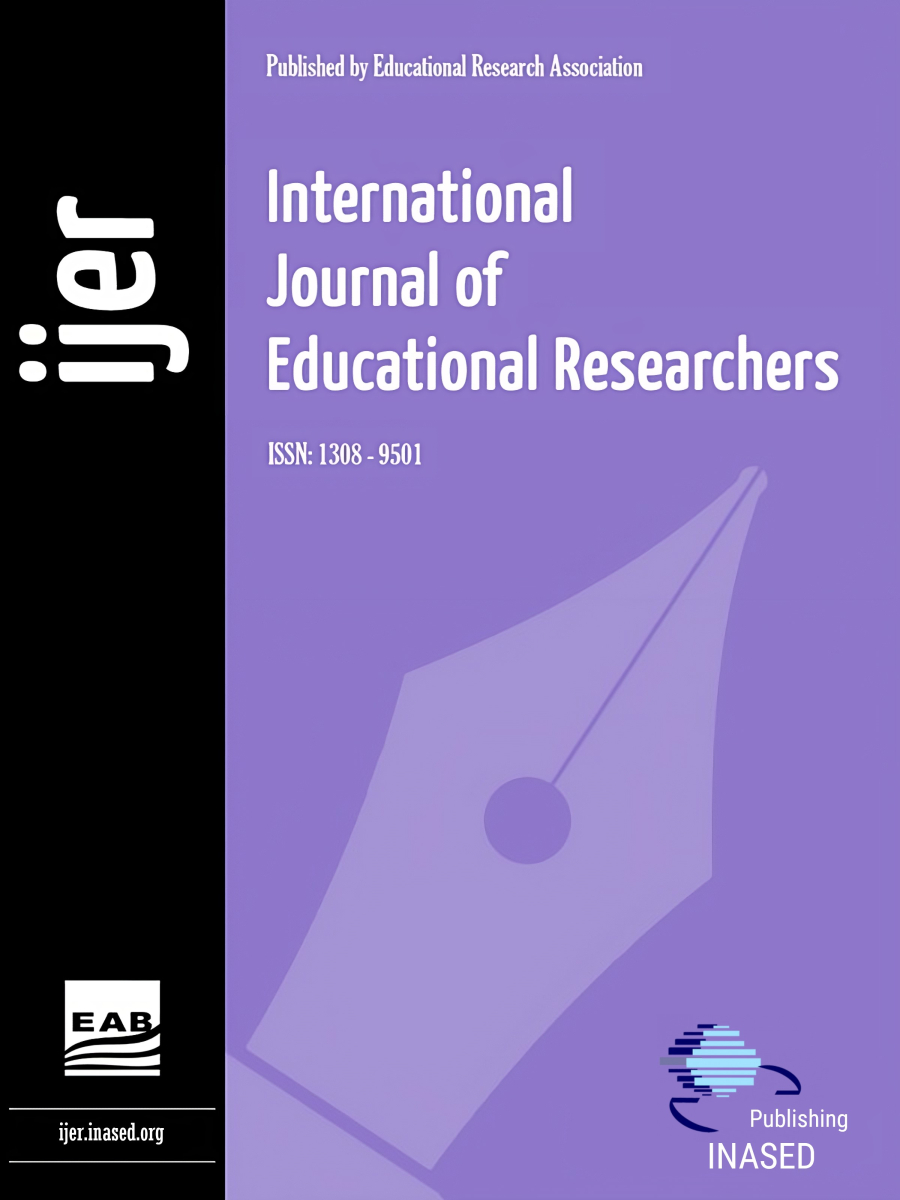Original article | International Journal of Educational Researchers 2018, Vol. 9(3) 9-16
Investigating The Effects of Motivational Interviewing Therapy and Gender on Teaching Competence of Secondary School Teachers in Gombe State, Nigeria
Sofeme Reuben Jebson & Kamilu Olanrewaju Muraina
pp. 9 - 16 | Manu. Number: MANU-1807-18-0003
Published online: September 30, 2018 | Number of Views: 66 | Number of Download: 677
Abstract
Teachers determine what ultimately happens to educational policies, to curriculum guidelines, the use to which teaching-learning materials are put and in fact the fate of a nation’s huge investments in education. This study therefore investigated the effects of motivational interviewing therapy and gender on teaching competence of secondary school teachers in Gombe State, Nigeria. Pretest-posttest, control group quasi-experimental design with a 2x2 factorial matrix was used in the study. Multi-stage sampling technique was used in sampling participants from 4 local government areas in the state. The respondents were measured with validated scale of 0.91 reliability coefficient and the data obtained was analyzed using t-test statistical analysis. Two (2) research hypotheses were formulated and tested at 0.05 level of significance. The results showed that there was significant difference in the teaching competence of secondary school teachers exposed to motivational interviewing therapy and those in the control group (t= 42.38; p<0.05) and there was no significant difference in the teaching competence of secondary school male and female teachers (t= .095; p>0.05). In view of these findings, the study recommended that educational stakeholders should intensify their effort to organize conferences on the implications of motivational interviewing therapy for effective interventions towards enhancing teaching competence of secondary school teachers.
Keywords: Motivational interviewing therapy, Gender, Teaching competence and secondary school teachers
| How to Cite this Article? |
|---|
|
APA 6th edition Harvard Chicago 16th edition |
| References |
|---|
|
Abagi, O. and Odipo, G. (2007). Efficiency of primary education in Kenya: Situational analysis and implications for educational reform. Kenya: The Institute of Policy Analysis and Research. Agokei, R. C. (2011). The effects of social cognitive training and mindfulness technique on teacher self-efficacy and effectiveness of pre- practica trainees in some Nigerian Universities. Unpublished Ph.D Dissertation submitted to the Department of Guidance and Counselling, In partial fulfilment of the requirements for the award of the degree of Doctor of Philosophy (Ph.D) of the University of Ibadan, Nigeria Alutu, A. N. G. (2005). The status of guidance services in secondary schools in Edo state. The Nigerian Journal of Guidance and Counselling, 10. 114-125. Amao, O.Z.K, , Olashinde-Giwa B.A, Muraina, K.O and Muraina, M. B. (2012): The Impact of Job Satisfaction on Punctuality Records of Civil Servants in Ministry of Education in Oyo State, Nigeria. The Journal of the Nigerian librarian Association, Akwa Ibom State Chapter. Vol 5 (1), 55-76. Brody, S. G. (2009). Maturity of judgment in adolescence: why adolescents may be less culpable than adults. Behavioural Sciences and the Law, 18(6), 741-760 Chau, G. (1996). The quality of primary schools in different development contexts. UNESCO: International Institute for Educational Planning. Cheng Yin C. and Tsui Kwok T. (1996). Total teacher effectiveness: new conception and improvement in International Journal of Educational Management 10(6), 7-17. Hanushek, J. L. (2011). The psychology of sex differences. Stanford C.A.: Stanford University Press. Hettema, J., Steele, J., and Miller, W. (2005). Motivational interviewing. Annual Review of Clinical Psychology, 1, 91–111. Lundahl, B. W., Kunz, C., Brownell, C., Tollefson, D & Burke, B. (2010). A Meta-Analysis of Motivational interviewing: Twenty-five years of empirical studies. Research on Social Work Practice, 20, 137-160. Miller, W. R & Rollnick, S. (2012). Ten things that motivational interviewing is not. Behavioural and Cognitive Psychotherapy, 37, 129–140. Muraina, M. B, Nyorere, I.O & Muraina, K. O. (2014). Influence of job satisfaction and teacher sense of efficacy on teaching effectiveness among primary school teachers in Southwestern Nigeria. International Journal of Science and Research (IJSR). 6. 373-379. Muraina, M. B, Nyorere, I.O and Muraina, K. O. (2014). Influence of Job Satisfaction and Teacher Sense of Efficacy on Teaching Effectiveness among Primary School Teachers in South Western Nigeria. International Journal of Science and Research (IJSR). Vol 3(6), 373-379. Naar-King, M. Y & Suarez, E. L. (2011). Motivational interviewing with a depressed adolescent. Journal of Clinical Psychology, 65(11), 1168-1179. Federal Republic of Nigeria, FRN. (2013): National Policy on Education. Abuja, Nigeria: NERDC. Oluwatoyin, O, Muraina, M. B and Muraina, K. O. (2013). Influence of Teachers’ Attitude and Teaching Style on Students’ Learning Outcomes in Ibadan North Local Government Area of Oyo State. Global Journal of Academic Research Forum. Vol 1 (2), 95-115. Nwogbo, E. B. (2007). Essentials of nursing research. Methods, appraisal, and utilization. 6th ed. Philadelphia, PA: Lippincott Williams and Wilkins. Oderinde, O.I & Muraina, K.O. (2014). Professional development and experience as determinants of counselling perceived competence among selected school teachers in Southwestern, Nigeria. Research on Humanities and Social Sciences; 4, 1-7. Popoola, B. I. (2015). Correlates of school teacher competence in South Western Nigeria. Journal of Sociological Science, 8, 237-243 TESCOM. (2018). Oyo state civil service commission. Yearly Book of Ministry of education. 2018 Edition Tukur, M. Y & Abimbola, N. G. A. (2013). Factors influencing effective learning of Mathematics at senior secondary schools within Gombe Metropolis, Gombe State, Nigeria. Journal of Education and Practice, 4. 61-66 Van Dorsten, E. F. (2007). Sources of self-efficacy in school: critical review of the literature and future directions. Review of Educational Research, 78(4), 751-796. Westera, W. (2001). Competences in Education: a confusion of tongues. In Journal of Curriculum Studies, 33(1), 75-88. Wormer, P. M. (2007). Judging research quality. In Harris C. and Larry H. (Eds.), The Handbook of Research Synthesis (pp. 97-109). New York: Russell Sage Foundation.
|


